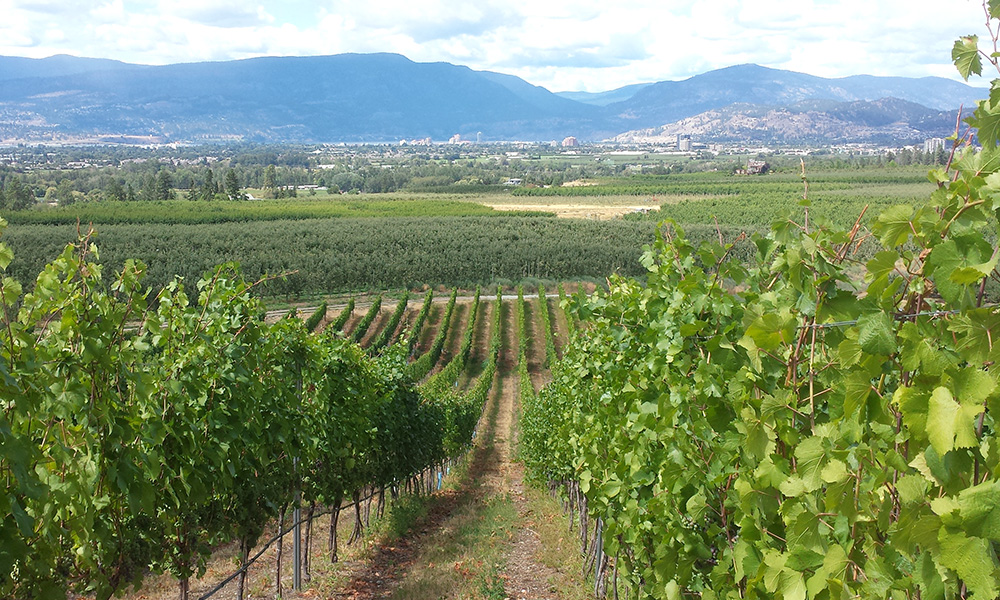
Dr. Jacques-Olivier Pesme won’t change his routine to mark Earth Day.
The director of the UBC Wine Research Centre will likely enjoy his favorite vintage and think about the vines from which the grapes were grown. He follows that routine many days of the year, not just every April 22. “Every day is Earth Day for us at the Wine Research Centre,” he says. “We’re always considering how we can better ensure a future for BC wines, especially in light of climate change.”
According to the National Oceanic and Atmospheric Administration, the combined land and ocean temperature has increased at an average rate of 0.08 degrees Celsius per decade since 1880, but the average rate of increase since 1981 has been more than twice as fast, at 0.18 C per decade. In addition to rising temperatures, climate change has led to more severe storms across the globe, increased drought in already water-strapped regions and a warming, rising ocean.
It affects all aspects of our day-to-day lives, including transportation, energy production, the cost of living, and beyond. It’s not a problem for the future. Industries across the globe are absorbing real climate effects on their businesses now.
“The wine industry does not escape the rule. It’s also affected by the climate change challenge,” Dr. Pesme says. “Numerous factors affect the taste of wine, including growing climate, hours of sunlight, water levels, warmth and nutrients. It’s well-known that that climate has direct impact on the flavor of ripe grapes, positive in most cases, but dramatic when the climate is changing radically. Science shows that BC will be more regularly affected by intense climate episodes, extreme heat or early frost, for instance.”
The Centre leans into three pillars for its research: grapes, vineyards and soils; wine and fermentation, winery performance and sustainability; and, wine territory competitiveness. Study happens in the field (or the vineyards, in this case) and at three locations in Vancouver and Kelowna. The Centre’s Mass Spectrometry Core Facility can analyze fragrance and aroma compounds, flavonoids and anthocyanins (pigment) in fruit, as well as metabolite profiling of small molecules.
UBC also established a Wine Library in Vancouver with donations from dozens of BC wineries. The library collection was established in order to study which grape varietals do best in specific micro climates in BC, and to study the long-term aging abilities of those wines.
Finally, the Plant Growth Facility at UBC Okanagan is a state-of-the-art greenhouse that opened in September 2020. The 5,000-square-foot facility has computer-controlled light and temperature programs for large projects, and allows for isolation of different growth and treatment protocols.
“As the climate situation evolves, we need to nurture the knowledge of owners and staff at vineyards. A precise knowledge of what we call micro-climate situations, as well as soil studies, will help us better understand how climate change affects a particular wine territory,” Dr. Pesme says. “The UBC Wine Research Centre wants to power vintners and grape growers with more and specific information to address climate change, because this is not just about wine. The world needs real solutions to extreme climate. We need better methods and knowledge in agriculture and production. The Wine Research Centre wants to contribute to those solutions.”
Please visit the UBC Okanagan News website to read the full story.
Through Strategy 9: Knowledge Exchange, UBC is committed to improving the ecosystem at the university and beyond that supports the translation of research into action.